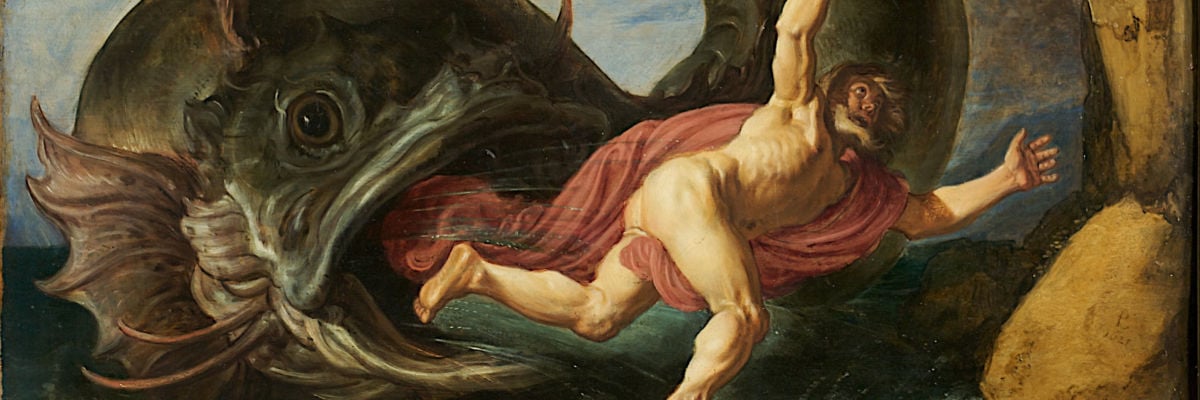
Question:
Answer:
Catholics are free to understand the story of Jonah and the whale as literal history or as didactic fiction. In Catholicism and Fundamentalism, Karl Keating writes:
“The Catholic Church is silent on the proper interpretation of many biblical passages, readers being allowed to accept one of several understandings. Take, as an example, Jonah’s escapade at sea, which readers often find disturbing. Ronald Knox said that ‘no defender of the sense of Scripture ever pretended, surely, that this was a natural event. If it happened, it was certainly a miracle; and not to my mind a more startling miracle than the raising of Lazarus, in which I take it Catholics are certainly bound to believe. Surely what puts one off the story of Jonah is the element of the grotesque that is present in it’ (Ronald Knox and Arnold Lunn, Difficulties, Eyre and Spottiswoode, 109).
The most common interpretation nowadays, and one that is held by indubitably orthodox exegetes, is that the story of the prophet being swallowed and then disgorged by a ‘great fish’ is merely didactic fiction, a grand tale told to establish a religious point. Catholics are perfectly free to take this or a more literal view. . .
Strictly literal interpretations of what happened to Jonah actually come in two forms. One relies on the fact that people apparently have been swallowed by whales and lived to talk about it. In 1891 a seaman, James Bartley, from a ship named the Star of the East, was found missing after an eighty-foot sperm whale had been caught. He was presumed drowned. The next day, when the crew cut up the whale, Bartley was discovered alive inside. If Jonah’s three days in the whale were counted like Christ’s three days in the tomb, after the Semitic fashion—that is, parts of three distinct days, but perhaps only slightly more than twenty-four hours total—then it is possible that Jonah could have been coughed up by that great fish just as his story says. This would be a purely natural explanation of the episode.
The other literal interpretation is that Jonah indeed underwent what the story, read as straight history, says he did but survived only because of a positive miracle, and several different sorts of miracles have been suggested, such as suspended animation on Jonah’s part or a fish with a remarkably large air supply and decidedly mild gastric juices” (Catholicism and Fundamentalism, Ignatius Press, 129–30).


